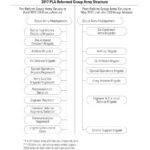A Massachusetts restaurant found itself at the center of a heated debate after serving a group of World War II reenactors, some of whom were wearing German SS uniforms. The incident led to public outcry, threats against the restaurant staff, and a temporary closure, highlighting the sensitive nature of historical representation and the lingering impact of WWII symbols, particularly Ww2 German Ss Uniforms.
The Kith and Kin restaurant in Hudson, Massachusetts, faced immediate backlash after hosting members of the American Heritage Museum. Among the group were individuals dressed as American soldiers, a military nurse, and controversially, two reenactors in ww2 german ss uniforms. While the restaurant staff were aware that these were living historians, the sight of ww2 german ss uniforms in a public dining setting sparked outrage and accusations of insensitivity, especially given the current climate of rising anti-Semitic violence.
Restaurant’s Apology and Public Reaction
In response to the escalating controversy, Kith and Kin issued a public apology on their Facebook page. The restaurant acknowledged that, in retrospect, they should have asked the reenactors in ww2 german ss uniforms to change before seating them. They emphasized their understanding that the individuals were historical reenactors but admitted their failure to anticipate the potential distress and offense to other diners, particularly given the heightened sensitivity surrounding anti-Semitism. The apology aimed to reassure the community that the restaurant did not condone anti-Semitic beliefs and that their intention was never to offend anyone.
Despite the apology, the situation intensified. The restaurant became the target of harassment and threats, forcing them to temporarily close for the safety of their staff. This closure underscores the powerful emotional response triggered by the public display of ww2 german ss uniforms, symbols deeply associated with Nazi atrocities and the Holocaust. The incident reflects a broader societal concern about the normalization or trivialization of Nazi imagery, even in contexts like historical reenactment.
Museum Defends Reenactors but Acknowledges Context
The American Heritage Museum, the group to which the reenactors belonged, also addressed the controversy. While defending the practice of historical reenactment as educational, a museum trustee, Gary Lewi, stated unequivocally that wearing ww2 german ss uniforms outside of a strictly historical or educational setting is “beyond thoughtless” and “repugnant.” He emphasized the museum’s strict protocols regarding the wearing of such uniforms, stating that even on museum property, costumes with SS insignia are not permitted outside of carefully controlled reenactment scenarios.
Lewi explained that the museum has specific guidelines on when, where, and how such uniforms should be worn to ensure historical accuracy and avoid causing offense. He acknowledged that in this instance, those protocols were violated, leading to the unfortunate incident at the restaurant. The museum committed to reinforcing these protocols and implementing stricter consequences for any future breaches.
The Significance of SS Uniforms in Public Discourse
The controversy surrounding the ww2 german ss uniforms highlights the complex and often painful legacy of World War II. For many, especially those from communities targeted by the Nazis, the SS uniform is not merely a historical artifact but a potent symbol of terror, genocide, and hate. The public display of such uniforms, even in a reenactment context, can evoke deep emotional responses and be interpreted as a sign of insensitivity or, worse, as tacit approval of the ideology associated with the SS.
This incident serves as a reminder of the importance of context and sensitivity when dealing with historically charged symbols like ww2 german ss uniforms. While historical reenactment can be a valuable educational tool, it must be approached with careful consideration for public perception and the potential for causing offense or harm, particularly to communities directly affected by the atrocities of the Nazi regime. The reopening of the Kith and Kin restaurant marks a step towards moving forward, but the underlying issues surrounding the public display of ww2 german ss uniforms and historical sensitivity remain relevant and require ongoing dialogue and understanding.

